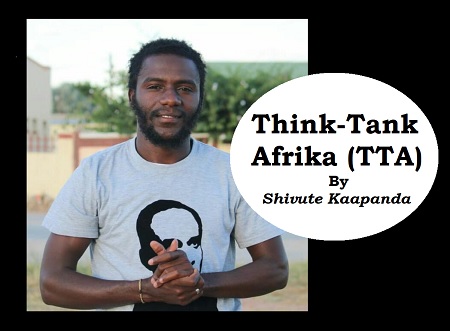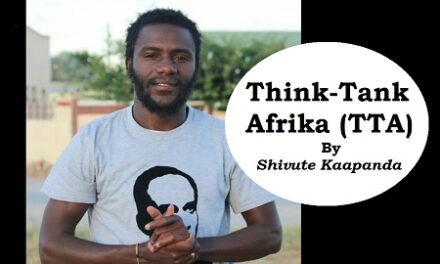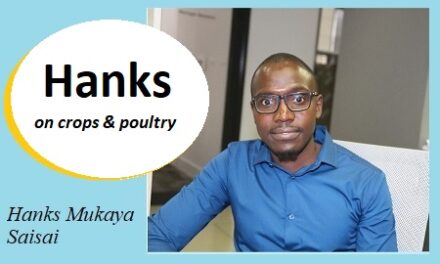
The relevance of “Kalunga Noonyoko” African metaphor (part 2)
By Shivute Kaapanda [Think Tank Africa]
A metaphor is a figure of speech found and used in any language to figuratively conceal or reveal a specific message intended for a specific use by a person for a specific audience.
For instance a politician, an author or a storyteller might use a specific language or form of words in a book or in a speech to figuratively convey a specific message in a manner other than of literal interpretation.
As with regard to “Kalunga nooNyoko” for many modern Oshiwambo speaking people who have not mastered their art of speech and language very well may interpret such phrase as uncomfortable or disgusting and inappropriate to use in public domain or even an insult.
With this I would say they have failed the test of ‘figurative language’. A figurative language is a language or choice of words that is not to be interpreted literally; if you interpret “Kalunga nooNyoko” literally you will obviously get a wrong message derived from the literal meaning.
Figurative speeches are way beyond what is literally said.
The metaphor “Kalunga nooNyoko” is a formulation of figurative speech used by King Mbwada which used a language that is uncommon in the mainstream discourse. It was made specifically for the specific purpose that the wisdom of King Mbwada could express toward the political climate in that specific period and age of leadership especially at a time when the white man tried to ruthlessly invade and conquer the political territory of Ombalanhu.
It is not so different with regard to the modern use of the phrase “Kalunga nooNyoko” as ruthless, radical and revolutionary as it may sound to an ordinary Oshiwambo speaking person, it remains a relevant metaphorical phrase for many radical linguists out there who choose a figurative way of expressing their views on politics, culture, religion and economy freely in a public discourse.
The phrase “Kalunga nooNyoko” has a deeper meaning and sound with the connectivity to the nature of human biology and that of the gods. In lamenting phrases such as these have always had a linguistical impact of radical rudeness and intolerance but especially toward protecting what was is sacred.
It is not new to have such phrases or at least not in Oshiwambo language; the recent generations of Aawambo have taught us wisdom using many uncomfortable metaphorical phrases which have also been used in formal human programming or school education system.
For example, in Oshiwambo there is a saying which says “Oulumenhu kaishi okava ka timba” meaning “to be a man is not just confined to having an erected penis”, a proverbial expression which goes beyond literal meaning that a man can achieve a lot as being a man apart from him using only his sexual organs.
Another phrase in Oshiwambo which is more proverbial is “sha kwata onufu iipa” meaning “what make up and hold up the anus is the skin” which goes way beyond the literal organ in question that in any situation it is always the small things which matters most and make up the big things.
As Africans we need to learn the basic narratives which help us to unchain ourselves from the mere western education system which sometimes teaches ignorance of our own cultural codes of communication.
Confucious, a famous Chinese political theorist (551-497 BC) had cautioned us that “ignorance is the night of the mind, a night without a moon or star”.
Even at the expense of our comfort but in honour of what our ancestors died for, we should always place reason over and above emotions as we remain solid and fight for our generational mission.
I remain the Kalunga nooNyoko of my own generation because I am that and I am not ashamed of what my ancestors stood for and against.
– Shivute Kaapanda is an Author and Columnist from Eyanda village. He authored a book titled “The Conscious Republic” published in 2020. He can be contacted at iskaapanda@gmail.com





